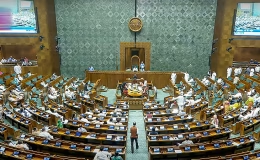Joint Letter to Prime Minister Theresa May
The Rt. Honourable Theresa May, MP
Prime Minister
10 Downing Street
London
SW1A 2AA
Madame Prime Minister, Theresa May
As you prepare for your first visit to China as British Prime Minister, we are writing to you to express our profound concerns about the dire situation in Tibet and the increasing levels of pressure that China is exerting on other governments to dissuade them from challenging its poor human rights record.
The United Kingdom is one of China’s key trading partners and retains a crucial level of influence on Beijing. We urge that you take this important opportunity to raise Tibet and human rights in the strongest possible terms with President Xi Jinping and other Chinese Communist Party leaders, and to say that you have done so publicly. Engaging in any form of self-censorship, in the hope that this may secure short-term benefits in the bilateral relationship, undermines the UK’s core values and democratic principles.
President Xi’s leadership has been characterised by a wholesale effort to silence dissent – at home and abroad – across a range of issues, not least relating to China’s continued military occupation of restive Tibet. On Xi’s watch, prominent human rights defenders have died in custody: notably Tibetan Buddhist leader Tenzin Delek Rinpoche and Nobel Peace Laureate Liu Xiaobo. Earlier this month, Tibetan shopkeeper Tashi Wangchuk was tried for ‘inciting separatism’ for expressing concern about the lack of education in the Tibetan language, even though his actions are entirely in line with the Chinese Constitution and international law.
We also wish to raise concern about the UK’s participation in the “Belt and Road Initiative”, as expressed by Chancellor Philip Hammond in May 2017: “we in Britain are a natural partner in the west, standing ready to work with all Belt and Road partner countries to make a success of this initiative”. We believe that prior to any solid agreement between the UK and China, the UK government has an obligation to scrutinise what the impact of this initiative will have on the human and civil rights of those affected along the “belt and road”, including in Tibet, East Turkestan (Ch: Xinjiang) and China. International human rights norms apply to all residents and participants of this initiative. With this in mind, the UK must ensure that binding international human rights obligations are met in full. For example, Chinese authorities in Tibet – a significant portion of which will be used to connect China’s “Belt and Road” – continue to impose harsh restrictions on Tibetans’ freedom of expression, movement, assembly and their right to religious freedom. Widespread concerns about mining and land grabs, and the damage caused to the local environment, farmland and water supply, are routinely met with intimidation and arbitrary, disproportionate violence by security forces.
We are further concerned that the UK’s full participation in the “Belt and Road Initiative” will come with a political price to pay; silence on sensitive issues. Under Xi’s leadership, China is adopting tactics intended to bully and bribe governments, academic institutions and inter-governmental agencies. The Chinese authorities have engaged in reprisals and intimidation against those who seek to cooperate with the United Nations and its mechanisms. Member states who sign joint statements about China’s human rights record or hold meetings with the Dalai Lama are subjected to a diplomatic “deep freeze” and Confucius Institutes are used as a vehicle for Chinese propaganda, censoring freedom of speech at universities.
China’s bullying cannot be allowed to continue. We recognise that this meeting with President Xi is a pivotal step in determining the future relationship between the UK and China. As such, it should be conducted between two equal partners who are willing to hold open and frank exchanges. Raising the security crackdown in Tibet, and its detrimental and counterproductive impacts, would send a clear signal to the Chinese leadership that the UK is prepared to speak up for human rights even as it negotiates the future trade relationship with China, setting a crucial precedent for other countries to follow. The absence of such steps will be tantamount to allowing those responsible for systematic human rights violations impunity.
We further urge that you, in light of China’s forthcoming Universal Periodic Review, press Beijing to act on its commitment to permit a visit by the High Commissioner for Human Rights, and other UN Special Procedures, by agreeing dates for the trip as a matter of urgency, and prior to China’s Review in November 2018.
Finally, we appeal to you to prioritise the development of a more robust policy on Tibet, that engages with other concerned governments, to collectively address China’s flawed policies so that the Tibetan people’s aspirations for freedom and basic human rights can be realised. Together, you and other government leaders are uniquely positioned to exercise strong and direct influence on China’s new leadership. By speaking and acting in unison, you will not only increase your influence over Beijing, but this common approach will provide participating governments with a greater measure of protection from China’s efforts to impose its authoritarian influence on our own democracies.
Yours sincerely,
Eleanor Byrne-Rosengren, Director, Free Tibet, eleanor@freetibet.org
Kate Saunders, Communications Director, International Campaign for Tibet, kate.saunders@ictibet.co.uk
Alison Reynolds, Executive Director, International Tibet Network, alison@tibetnetwork.org
Pema Yoko, Deputy Director, Students for a Free Tibet, pema@studentsforafreetibet.org
Gloria Montgomery, Head of Advocacy and Campaigns, Tibet Society, advocacy@tibetsociety.com
Pempa Lobsang, Chair, Tibetan Community UK, tcbchairman@gmail.com



